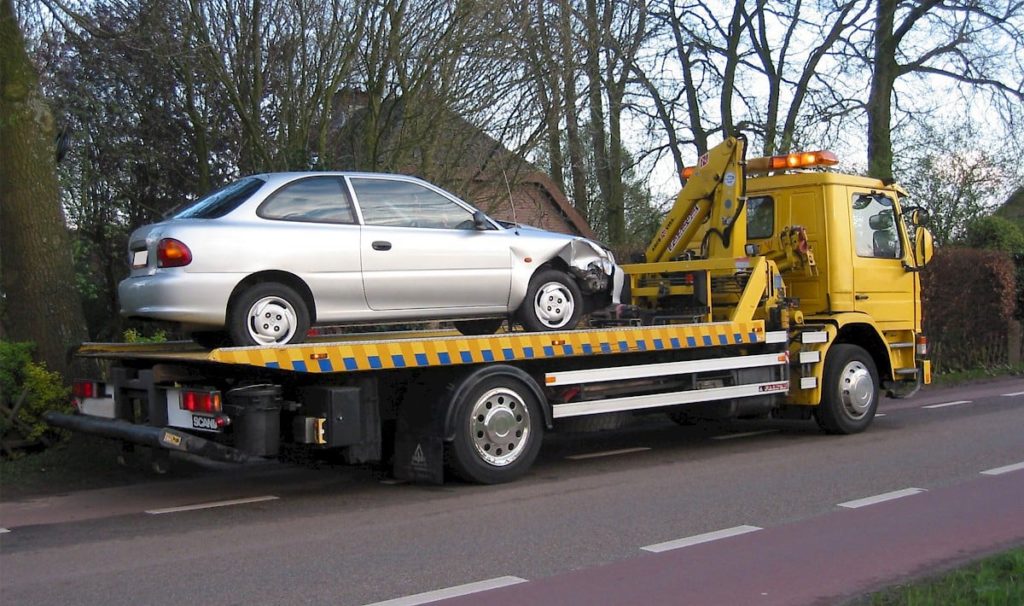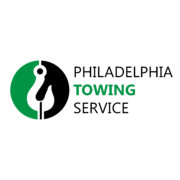The Ultimate Guide to Accident Towing in Philadelphia
Accidents happen when we least expect them, and when they do, having the right knowledge can make all the difference. In the bustling city of Philadelphia, navigating the aftermath of an accident can be especially challenging. That’s where our comprehensive guide comes in. Whether you’re a Philly native or just passing through, understanding the ins and outs of accident towing in Philadelphia is crucial. This guide will walk you through everything you need to know to ensure your safety, minimize stress, and make informed decisions during those unexpected moments on the road.
What is Accident Towing?
Accident towing refers to the specialized service of transporting vehicles involved in road accidents to a designated location, typically a repair shop or impound lot. When accidents occur, vehicles may be damaged, immobilized, or unsafe to drive, necessitating professional towing assistance.
Accident towing providers are equipped with the necessary equipment and expertise to safely secure and transport damaged vehicles, ensuring they are removed from the accident scene efficiently and without causing further harm. This service not only aids in traffic clearance but also plays a vital role in ensuring the safety of all parties involved and preventing potential hazards associated with disabled vehicles on the road.
Choosing the Right Towing Service
Selecting the right towing service is a crucial decision, especially when you find yourself in the stressful aftermath of an accident in Philadelphia. Making the wrong choice can exacerbate an already challenging situation, so it’s essential to know how to pick the right towing service. Here are some key factors to consider:
- Reputation Matters: Begin your search by considering the reputation of the towing service. Check online reviews, ask for recommendations from friends or family, and look for any history of customer complaints. A reputable service with positive feedback is more likely to provide reliable assistance.
- Response Time: In emergency situations like accidents, response time is crucial. Opt for a towing service in Philadelphia known for its quick response times. Knowing that help is on the way promptly can reduce stress during a difficult situation.
- Licensing and Certification: Ensure that the towing company and its operators are properly licensed and certified. This guarantees that they adhere to the necessary safety standards and regulations, providing you with peace of mind knowing that professionals are handling your vehicle.
- Insurance Coverage: Check whether the towing service carries insurance. This is important because accidents during towing can sometimes occur. Insurance coverage ensures that any potential damage to your vehicle is appropriately compensated.
- Transparent Pricing: Request a detailed breakdown of the towing costs upfront. Reputable towing services will provide transparent pricing without hidden fees. Make sure you understand the pricing structure before confirming their assistance.
- Range of Services: Consider whether the towing service offers additional services, such as roadside assistance or vehicle storage. Having access to a range of services from one provider can be convenient and cost-effective in the long run.

What to Do After an Accident
After a car accident in Philadelphia, it’s crucial to take specific steps to ensure your safety and navigate the situation appropriately:
- Prioritize Safety: After an accident in Philadelphia, the safety of all involved parties should be your top concern. Ensure that everyone is out of harm’s way and if possible, move your vehicle to a safe location, like the shoulder of the road.
- Contact the Authorities: Dial 911 or the local police to report the accident. In Philadelphia, it’s important to have an official accident report for insurance purposes and legal documentation.
- Exchange Information: Exchange contact, insurance, and vehicle information with the other party involved. Be polite and avoid admitting fault, as fault determination is typically handled by insurance companies and authorities.
- Document the Scene: Use your smartphone to take photos of the accident scene, including vehicle damage, license plates, and the positions of the vehicles. These photos can be valuable for insurance claims.
- Notify Your Insurance Company: Contact your insurance company as soon as possible to report the accident. They will guide you through the claims process and may provide instructions on towing services.
- Consider Towing: If your vehicle is damaged and cannot be safely driven, consider contacting a reputable towing service to transport your vehicle to a repair shop. Ensure your safety and that of others before arranging for towing assistance.
The Towing Process
- Assessment and Safety: When the towing professionals arrive at the accident scene, their first priority is to assess the situation. They’ll ensure that everyone involved in the accident is safe and out of harm’s way. This assessment includes checking for any hazards, such as leaking fluids or debris on the road.
- Securing the Vehicle: Towing professionals will carefully secure the damaged vehicle for transport. They use specialized equipment like tow straps, hooks, and wheel dollies to ensure the vehicle remains stable and does not sustain further damage during transit.
- Communication: Clear communication between you, the towing company, and the authorities is essential. You may need to provide important details, such as your vehicle’s location, condition, and destination. Always ask for an estimated arrival time.
- Paperwork and Documentation: Towing professionals will typically ask you to sign some paperwork before they begin the tow. This documentation outlines their responsibility for your vehicle during the towing process. Ensure you understand what you’re signing.
- Transportation: Once everything is in order, the towing service will transport your vehicle to your chosen destination, such as a repair shop or storage facility. They will drive cautiously to prevent further damage.
- Payment: Be prepared to pay for the towing service. Depending on your insurance coverage and the circumstances of the accident, some or all of the towing costs may be covered. Clarify payment arrangements with the towing company in advance.
Costs and Insurance
Costs and insurance considerations play a significant role when dealing with accident towing in Philadelphia. Here are key points to understand:
- Towing Costs: Accident towing costs can vary based on several factors, including the distance of the tow, the type of vehicle, and the towing company’s pricing structure. Towing services in Philadelphia typically charge a base fee plus a per-mile fee.
- Insurance Coverage: Review your auto insurance policy to determine if it covers accident towing expenses. Many insurance policies include roadside assistance and towing coverage, which can offset or fully cover towing costs. Contact your insurance provider to clarify the extent of your coverage.
- Out-of-Pocket Expenses: If your insurance doesn’t cover towing or if the towing costs exceed your coverage limit, you may be responsible for out-of-pocket expenses. It’s important to inquire about the towing company’s pricing and payment options in advance to avoid surprises.
- Direct Billing: Some towing companies in Philadelphia can bill your insurance directly for towing services covered under your policy. This can simplify the process and minimize your immediate financial burden.
- Claims Process: If the accident was not your fault, you may be able to recover towing expenses from the at-fault driver’s insurance company. Your insurance provider can guide you through the claims process and help you seek reimbursement.
- Itemized Invoices: Request an itemized invoice from the towing company, detailing all charges related to the tow. This documentation is valuable for insurance claims and ensuring you are billed accurately.

Towing Safety Tips
Safety is paramount when dealing with accident towing or any towing situation. Here are some essential towing safety tips for both drivers and towing professionals:
For Drivers
- Prioritize Personal Safety: After an accident, ensure that everyone involved is safe. Move to a safe location, away from traffic, if possible.
- Stay Calm and Alert: Accidents can be stressful, but maintaining a calm and clear mindset is crucial. It helps you make rational decisions and communicate effectively.
- Contact the Authorities: Always report the accident to the police, even if it seems minor. An official accident report can be vital for insurance claims.
- Use Hazard Signals: Activate your hazard lights to warn other drivers about the accident and your stationary vehicle.
- Communicate Clearly: When calling a towing service, provide precise details about your location, the condition of your vehicle, and any special circumstances, such as leaks or hazards.
- Wait Safely: While waiting for the towing service to arrive, stay inside your vehicle if it’s safe to do so. If it’s not safe, stand away from the roadway and move traffic.
For Towing Professionals
- Safety Training: Towing professionals should undergo proper training to handle different towing situations safely.
- Protective Gear: Wear appropriate safety gear, including high-visibility vests and safety helmets, especially when working on busy roads.
- Secure the Vehicle: Ensure the vehicle being towed is securely attached to the towing equipment to prevent it from coming loose during transit.
- Proper Equipment Inspection: Regularly inspect towing equipment, including tow straps, hooks, and winches, to identify any wear or damage that may compromise safety.
- Slow and Cautious Driving: Towing professionals should drive at a controlled and safe speed, considering the weight and condition of the towed vehicle.
- Communicate with the Driver: Maintain clear communication with the vehicle owner or driver to ensure they are informed about the towing process.
- Emergency Equipment: Towing vehicles should be equipped with emergency lights and signs to warn other drivers when stopped on the road.

Conclusion
When it comes to accident towing in Philadelphia, knowledge and preparedness are your best allies. Understanding the towing process, costs, insurance implications, and safety precautions can make a significant difference during a stressful situation. Remember to choose a reputable towing service that puts safety first.
If you find yourself in need of accident towing or any related services in the Philadelphia area, don’t hesitate to reach out to us today. Your safety and peace of mind are our top priorities. Contact us now for prompt and professional assistance. Your trusted towing partner is just a call away.


